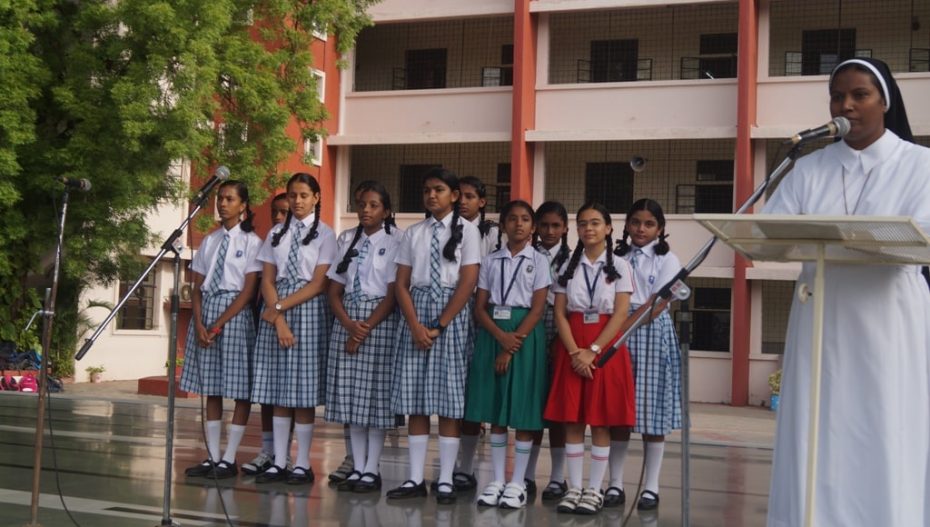Article 29 and Article 30 of the Cultural and Educational Rights Act of the Indian Constitution give minority schools the right to administer their schools without the interference of a state government. But in a recent move, the Gujarat government has submitted an affidavit in the Gujarat High Court stating that “reasonable regulations” are required over religious and linguistic minority schools. It has led to the latest amendments to the Gujarat Secondary and Higher Secondary (Amendment) Act, 2021, which takes away the right of minority schools to monitor and run their schools.
In this context, Gujarat High Court advocate Muhammad Isa Hakim discussed the nuances of the Act and how it will influence the future of minority schools. Excerpts from the conversation:
Religious and linguistic minorities in GujaratReligious minorities in Gujarat include Christians, Muslims, Parsis, Buddhists, Jains, etc., while linguistic minorities in the state include Urdu, Marathi, Hindi, Konkani, Telugu, Tamil, Punjabi, Sindhi, Malayalam etc.
Who is challenging the amendment?
The first ones to file the petition against the amendment are Christian missionary schools such as Carmel School in Ahmedabad, and St Xavier’s School. There is a Muslim minority schools as well who have come forth to file a petition.
Explained: Cultural and Educational Rights Act
Articles 29 and Articles 30 of the Cultural and Educational Rights Act of our Constitution guarantee certain rights to minorities. Article 29 protects the interests of the minorities by making a provision that any citizen/section of citizens having a distinct language, script or culture have the right to conserve the same. Article 29 also mandates that no discrimination would be done on the ground of religion, race, caste, language or any of them. Article 30 mandates that all minorities, whether based on religion or language, shall have the right to establish and administer educational institutions of their choice.
Madrassas are administrated by Article 30. Article 30 also provides an absolute right to minorities that they can establish their own linguistic and religious institutions and at the same time can also claim for grants without any discrimination. They are protected under this act and if these laws are violated, they can directly go to the court.
History of Articles 29 and 30
Isa explained how Articles 29 and 30 of Cultural and Educational Rights were inserted in the Constitution. After a religion-based Partition, when the Constitution was framed, it was realised that minorities would feel insecure in the country. To ease those concerns, these two articles were added to the Constitution. The idea was to assure educational rights to minorities and not affect it adversely in any way.
Landmark judgement in the US, 1954
Recalling the landmark judgement of the US Supreme Court, Isa said, “The addition in the Constitution was happening when US schools were still discriminating on the basis of colour. One of the landmark judgements of the US Supreme Court was the Board of Education of Topeka, May 17, 1954.
“The U.S. Supreme Court ruled unanimously that racial segregation in public schools violated the Fourteenth Amendment to the Constitution, which prohibits the states from denying equal protection of the laws to any person within their jurisdictions. The decision of Brown v. Board of Education of Topeka is perhaps the most famous of all Supreme Court cases, as it started the process of ending segregation. It overturned the equally far-reaching decision of Plessy Ferguson in 1896.”
Why is the state government amending the Act?
The amendment states that teachers will only be appointed after scrutiny and after clearing the Teachers Appointment Test (TAT). The exam is to ensure that only a certain kind of teacher are appointed. “Excellence in education will be achieved only if teachers of a certain quality are appointed, but that’s true for the whole education system, not just minority schools, right? Another argument is that if minority schools are given the complete right to appoint teachers of their choice it may lead to maladministration if they do not appoint teachers of a certain quality. But it all runs against Article 30.”
All minority schools that are receiving a grant from the government will have to comply with the new amendments. Here, the state government argues that all minority schools funded by them will have to ensure a certain level of excellence in education — which is ensured by TAT.
Grievance of minority schools
The Gujarat Secondary and Higher Secondary Board regulates schools across Gujarat. It establishes what we colloquially call the Gujarat Board. In that act, there are certain protections to minority board that you can appoint, terminate, teachers of your choice.
“Innocuous rights like you can having your own calendar is reserved with minority schools.”“The 2021 amendment states that minority schools will have to appoint teachers who are either approved by the state or their names are given to the minority schools by the government. This is the main grievance behind the petitions filed against the amendment in the Gujarat High Court. Minority schools want the right to appoint teachers, principal and staff of their choice.”
Future implications of the amendmentThe implication that minority schools will not be able to appoint teachers of their choice will make it tougher for such schools to preserve their character. “Teachers are the heart and soul of any minority school. They shape the school. In order that a minority school’s character is conserved, it is important that the management of the school has the right to appoint teachers that are conducive or suitable to their environment and culture.”
Loss of disagreement in future“Rapport and communication between a student and a teacher are the entire point of schooling. The atmosphere is not conducive for teaching and learning, it will lead to a situation where two different ideologies are colliding with each other. It is a far-fetched idea.” Isa concluded.












